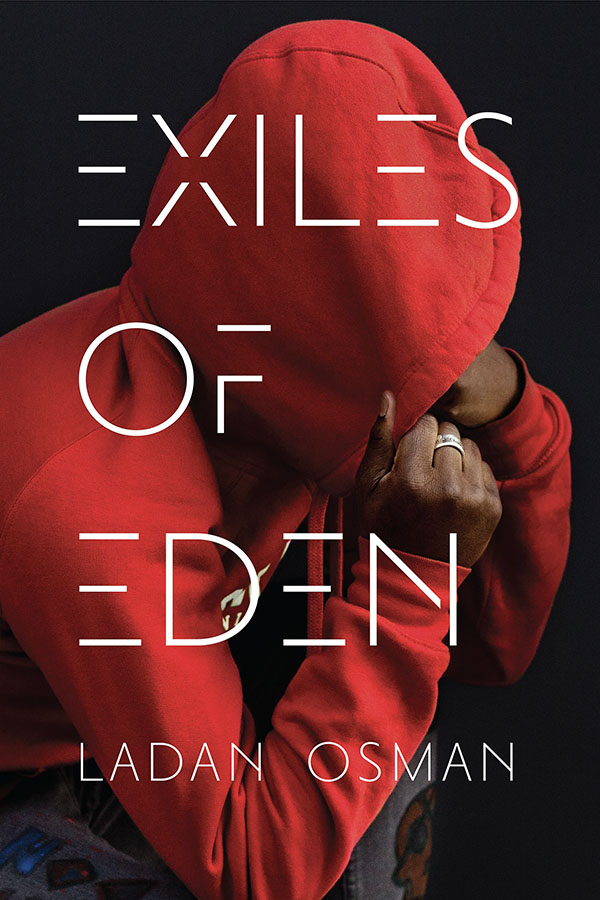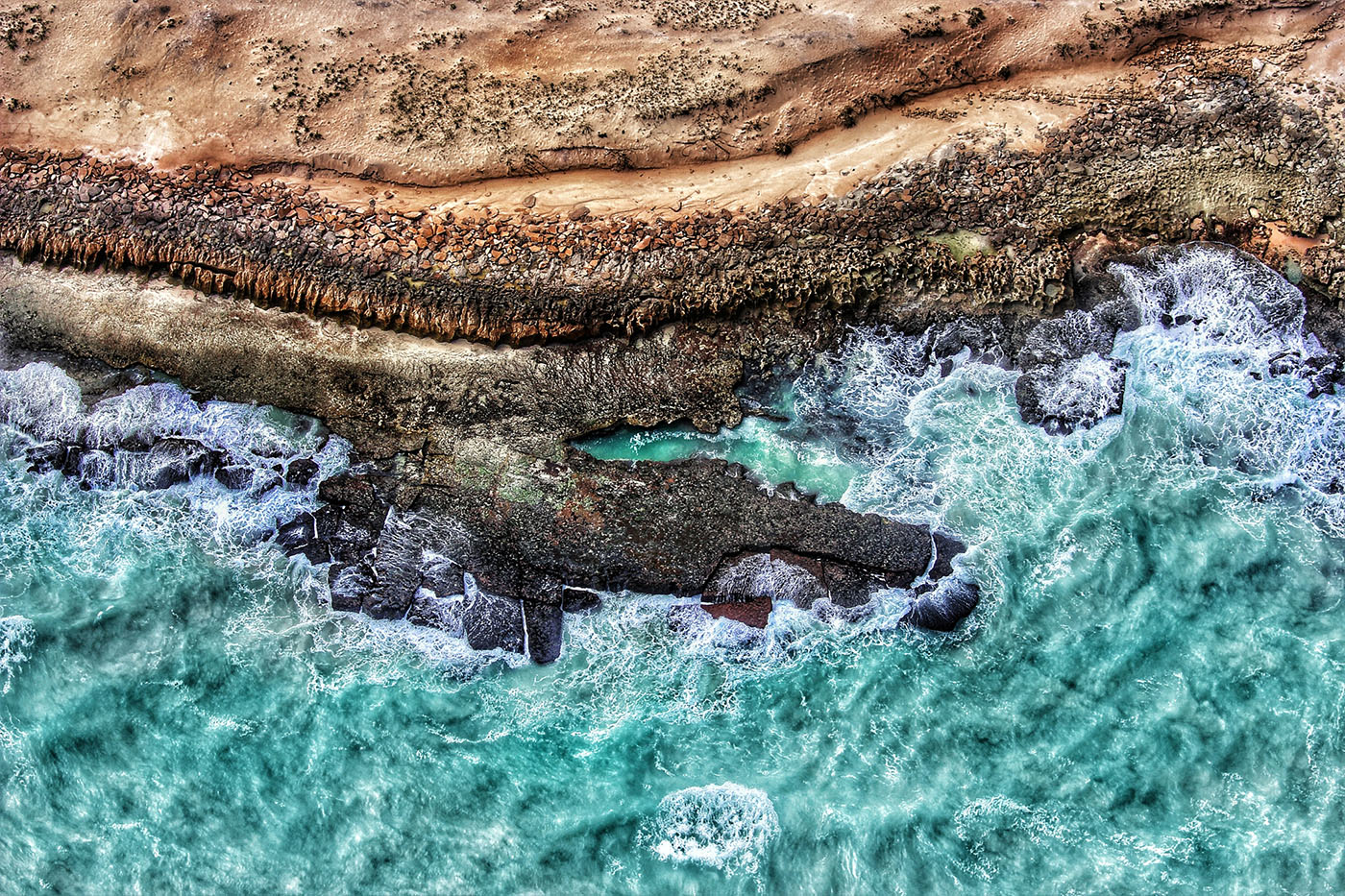Somalian American poet Ladan Osman presents her book Exiles of Eden, which looks at the origin story of Adam, Eve, and their exile from the Garden of Eden, exploring displacement and alienation from its mythological origins to the present. In this formally experimental collection steeped in Somali narrative tradition, Osman gives voice to the experiences and traumas of displaced people over multiple generations. The characters in these poems encounter exile’s strangeness while processing the profoundly isolating experience of knowing that that once you are sent out of Eden, you can’t go back.

Ladan Osman
The sea fell on my house
The sea fell on my house
I was sweeping
and counting my cups
and rinsing my toothbrush and bracing my hinges
when the sea fell on my house.
The sea fell on my house
when I’d braced for a straight-line wind.
The sea fell on my house
and I couldn’t tell if it jumped on me or me in it
but I was filled with the minerals and matter
every beast and root on earth contain.
I couldn’t tell if it jumped in me or me in it
but I watched it fall out of my body
warm seawater from my body
onto the kitchen floor I’d just checked
for the earth-dust of winter
the brown dust of winter.
When you enter with it
don’t say, “May.”
say, “Can. Can I?”
and I’ll answer with a gesture.
Cover me with your body.
In the atmosphere between
our ribs: rain.
Rain containing the minerals
and salve
for every beast and root on earth.
Cover me and cover my cries.
My mouth a cave for the sea
to rush through
your tongue some urchin
assigned to live
off my minerals and matter.
Later, when delinquent,
refuse to move, your belly at rest
your belly a palm on my belly.
Refuse to move until another train passes
and I’ll say, “No” with a gesture.
The sea fell on my house.
The sky was paperwhite.
Just after noon.
An exact white.
Winter-salt crests and froth
on the sidewalks.
That should’ve been a warning
that the sea would fall.
The real one
not the sad sea of a snow
mound resisting spring.
The real one
fell on my house.
I couldn’t tell if pressure
was at the front of my mind
or if my mind got stopped up
underwater.
The sea fell the sea fell the sea fell
on me and I’m at ease
and thirsty
and a figure is made known
a figure made from all the minerals
and matter
of his fellow beasts, the roots he eats.
We are thirsty and at ease
and falling asleep to the mineral scent
of our contribution to the sea.
We are thirsty and at ease
and the chalk and film of the sea
is dry on our thighs and fingers
and in the juvenile curve
under our lips.
We are thirsty and at ease
we are thirsty and at ease
we are thirsty and at ease
we are thirsty and at ease and mindful of our salt
and thirsty and at ease
and resting
and assured of the yield we’ll mine.
Landscape Genocide
My mother walked Liido Beach every morning when pregnant.
I know the mineral scent of seawater wherever I am.
If the sun bakes the metal of earth, if my own damp scalp sweats,
if I hold my hennaed palms to my face.
I have said, “God. There is no god but God” into my metallic palms.
When my blood started, war started.
Ever since the war started, I dye a henna disk on each palm.
I refresh it when it browns, old blood. “God,”
into my mineral palms when the whole street was white sheets,
thin men digging graves night til dawn til night til dawn.
They paused for every single prayer.
An orb of light dragged me through a dim street, lifted me off my feet.
I shouted “This is my light!” and held it tight against my belly.
I was still, beyond known stillness,
a gravity of my own, and still I didn’t light the street.
The last thing my mother promised me was a photo of her,
five months pregnant, at the shore, backlit by the ocean.
“Go at dawn,” she’d say. The water was warmest at dawn.
At dawn, girls went to the sea in whatever they were wearing,
even if they had school later. Their mothers couldn’t keep them
from the water, from walking fully dressed into it.
There was nowhere to go but Liido.
The orb, a giant marble in my diaphragm would float with me there.
There was nowhere to go but into the sea.
Between this interior desert and the sea at the edge
of my known world, orange pekoe-tinted sand
marked with the heels and balls of firm and dazed feet.
Charred acacias facedown in the dust.
Succulents marking clusters of graves. Graves of people
and fruit-bearing trees. Bones of tall livestock,
the startling domes of camel ribs lit like a great hall
by the relentless sun. There is nowhere to go but the sea.
Between here and its mineral scent, bones of people,
small and not small, bush lions and their young,
always litters of bones at the line between known
and wild worlds. Between here and Liido, the land
in full prostration. The only song, metallic. Shells,
or whole bullets underfoot, sometimes whole piles
at the edge and center of towns put facedown
at night, at dawn, during afternoon prayer, at dusk.
Between here and Liido, the land and everything in it
in full submission to the mineral scent of our water
and blood and inability to cry anything,
not even “God! No god but God!” We go at dawn.




